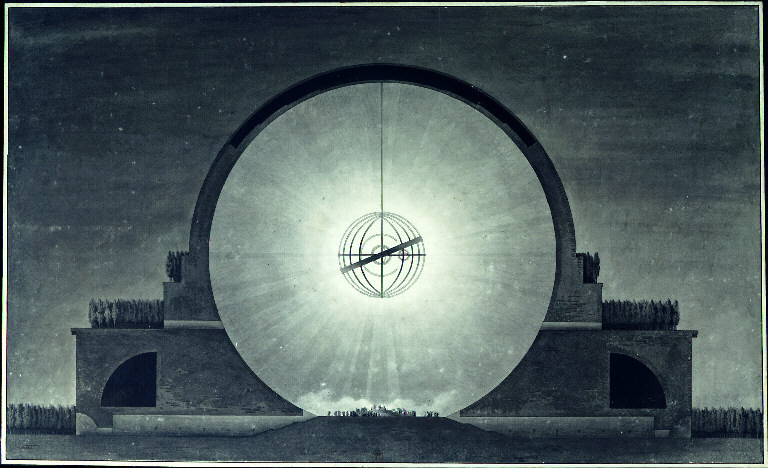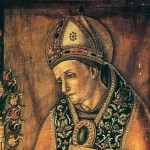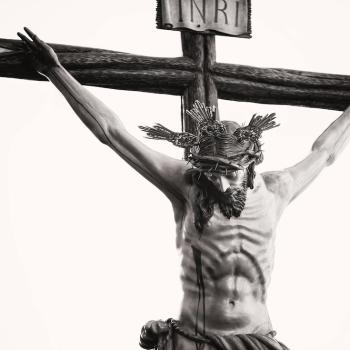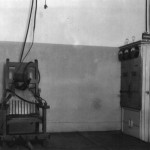
Savage Memory is an equally disturbing and humanizing documentary portrait of Bronislaw Malinowski, the Polish pioneer of modern anthropology. You might know Malinowski from used bookstore blushing perusals of titillating titles such as The Sexual Life of Savages and Magic, Science, and Religion. They are the intellectual’s equivalent of looking at dirty mags at the gas station–not that intellectuals aren’t ever caught doing the latter.
The documentary, directed by Malinowski’s grandson, mainly focuses upon the family fallout of the Great Man’s life. The side entertainment is the rubble he left behind for anthropology after his A Diary in the Strict Sense of the Term was published posthumously and against his wishes. The diary presents a severely conflicted man, depressed, megalomaniac, frequently racist, a womanizer, and always full of doubts. It put his brand of anthropology, unique in its insistence on living for extended periods with the peoples who are studied, into a crisis it has not fully recovered from.
There is one class of Malinowski’s doubts that really interest me for the purposes of this post. These are his doubts about polytheism’s ability to withstand the secularizing effects of Christianity upon the Trobriand islanders he studied.
Writing in the early 20th century he worried about what would happen to the ritual sexual promiscuity and the ancestor spirits of the islanders. He was convinced that Christianity would wipe them both out. He was right. His grandson’s trip to the island a hundred years later is proof. Nearly 100% of the Islanders were Christians and their magic, spirits, and sexual practices were only remembered by a handful of elders on the verge of death.
The study of the secularizing power of Christianity is nothing new. It’s covered in widely circulated and discussed books such as Marcel Gauchet’s The Disenchantment of the World, Gianni Vattimo’s Belief, and Jean-Luc Nancy’s Dis-Enclosure: The Deconstruction of Christianity.
Savage Memory hit me harder with the secularizing connection, because neither Malinowski, nor his grandson, made academic careers out of their field-tested theory of Christian secularization. In fact, they don’t seem to be aware of the importance of the claims they’re making. That sort of disinterestedness seems more authentic to me than the more abstract arguments of thinkers such as Gauchet and Nancy.
I also tend to trust the arguments of historians when it comes to probing the historical causation of secularization by Christianity. Guy Stroumsa’s The End of Sacrifice is an excellent book in this genre [I’ll get back to it with a full-blown book review in the near future]. Stroumsa meticulously goes through the evidence of how both Judaism and Christianity (a branch of Judaism after all) desacralized the pagan world, so much so, as is well known, these groups were considered to be atheist by their pagan contemporaries. Given our contemporary concern with the environment, the end of animal sacrifice with the coming of Christianity is of particular interest. Animal sacrifices were the center of pre-Judaic civic religions and to a great extent, even of Second Temple worship. Christianity’s insistence upon the once-and-for-all nature of Christ’s sacrifice, and the destruction of the Temple, almost totally eradicated the practice. Their effect was so swift that pagan Neo-Platonist philosophers admired these two groups for their salutary spiritualizing and civilizing influence. This was a radical break with the past.
What is worth thinking about is whether the demythologization of sex, sacrifice, violence and a whole slew of other things can be maintained if Christianity and Judaism succumb to the secularizing process they kick-started. My guess is that they cannot be maintained because these destructive forces are recurring problems of the human condition. Liturgical practice has the potential to prime us out of these tendencies, to be agnostic or atheist about them, by directing us toward an alternative vision of the world not dominated by them. This is what’s called the Kingdom of God.
Paradoxically, I believe that secularization–the marginalization of the powers and principalities–can only be maintained by through imagining, practicing, and desiring the Kingdom. I suppose that’s another version of the Catholic both/and. Both religion and secularization because they are, contrary to popular beliefs, twins.
That’s what the field data seems to suggest. Who am I to argue with its aporias and paradoxes?
For more on how liturgies do their demythologizing work on us look here.
I’m broke, still actively looking for work. Please donate here (Paypal button on the right side of the page, scroll down a bit).
















